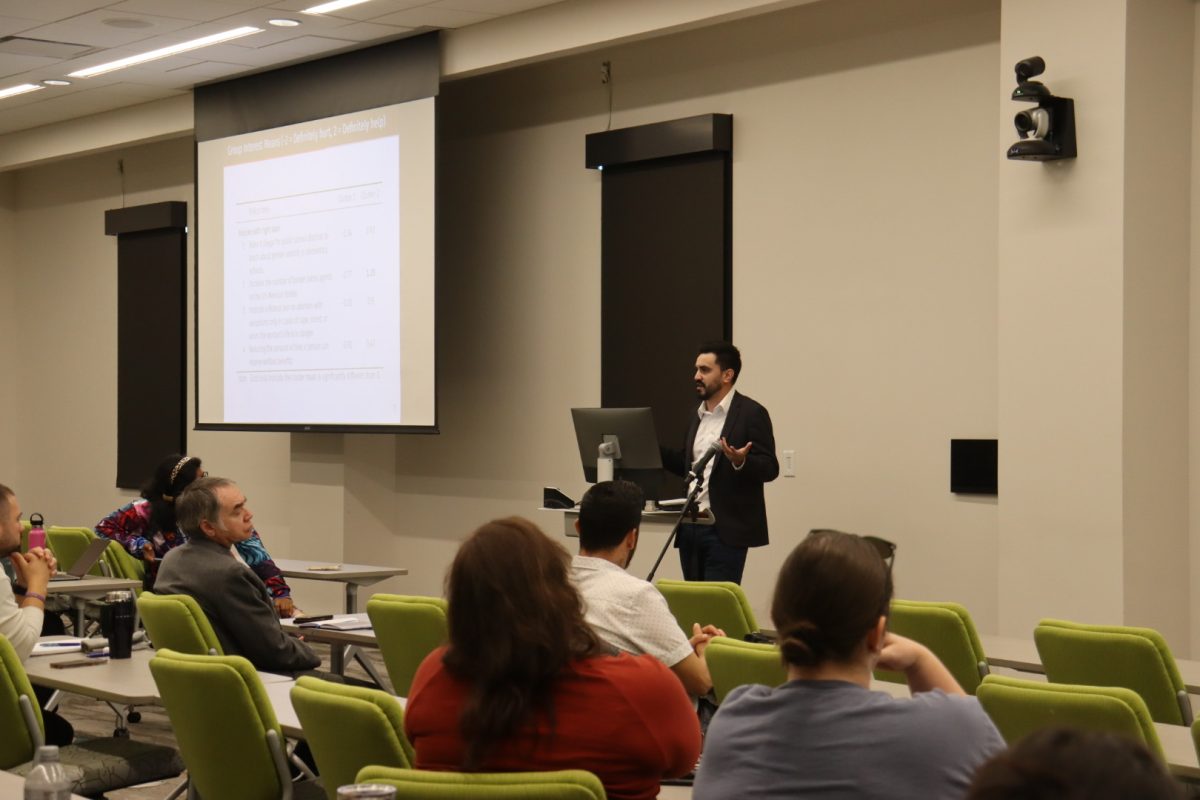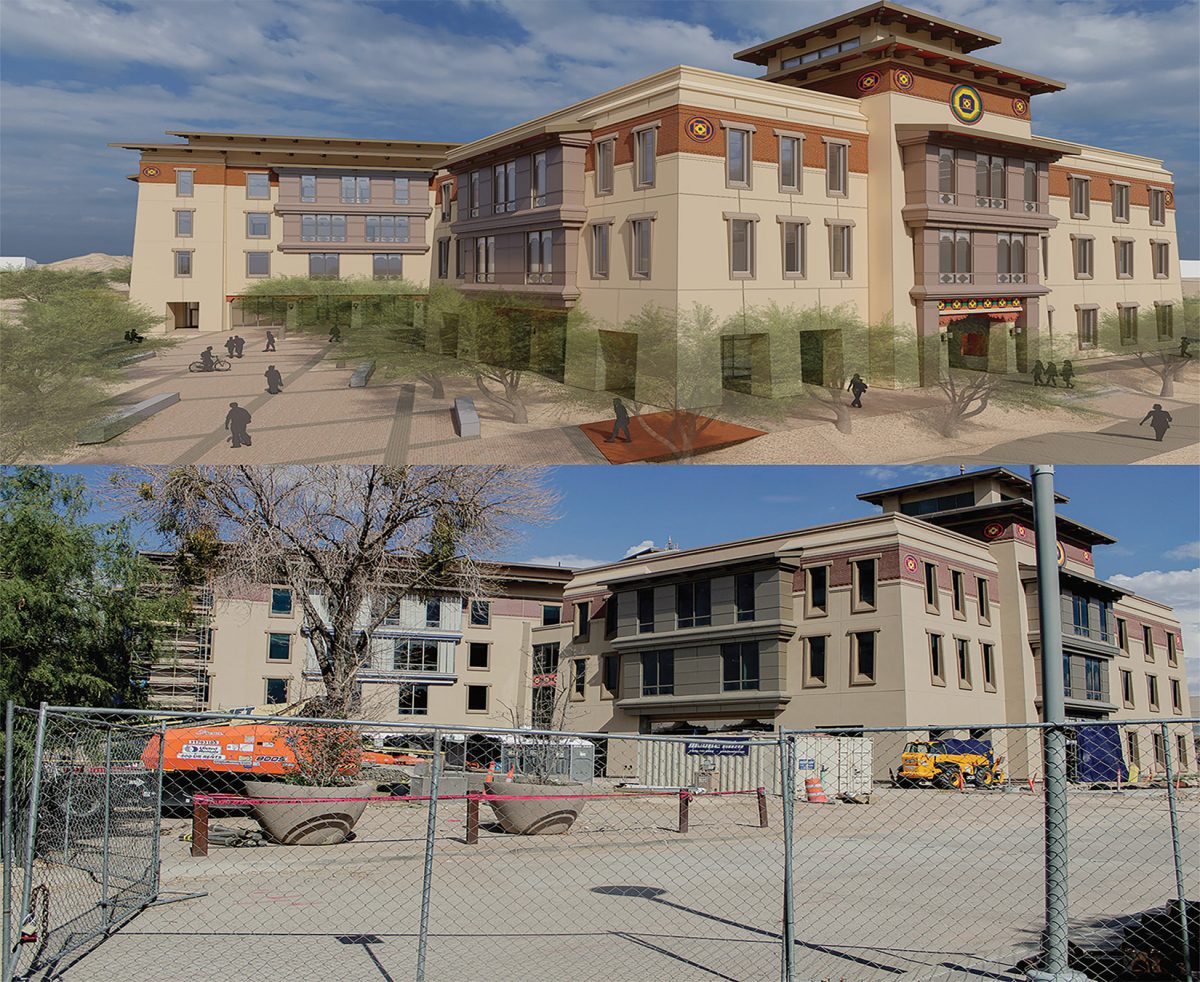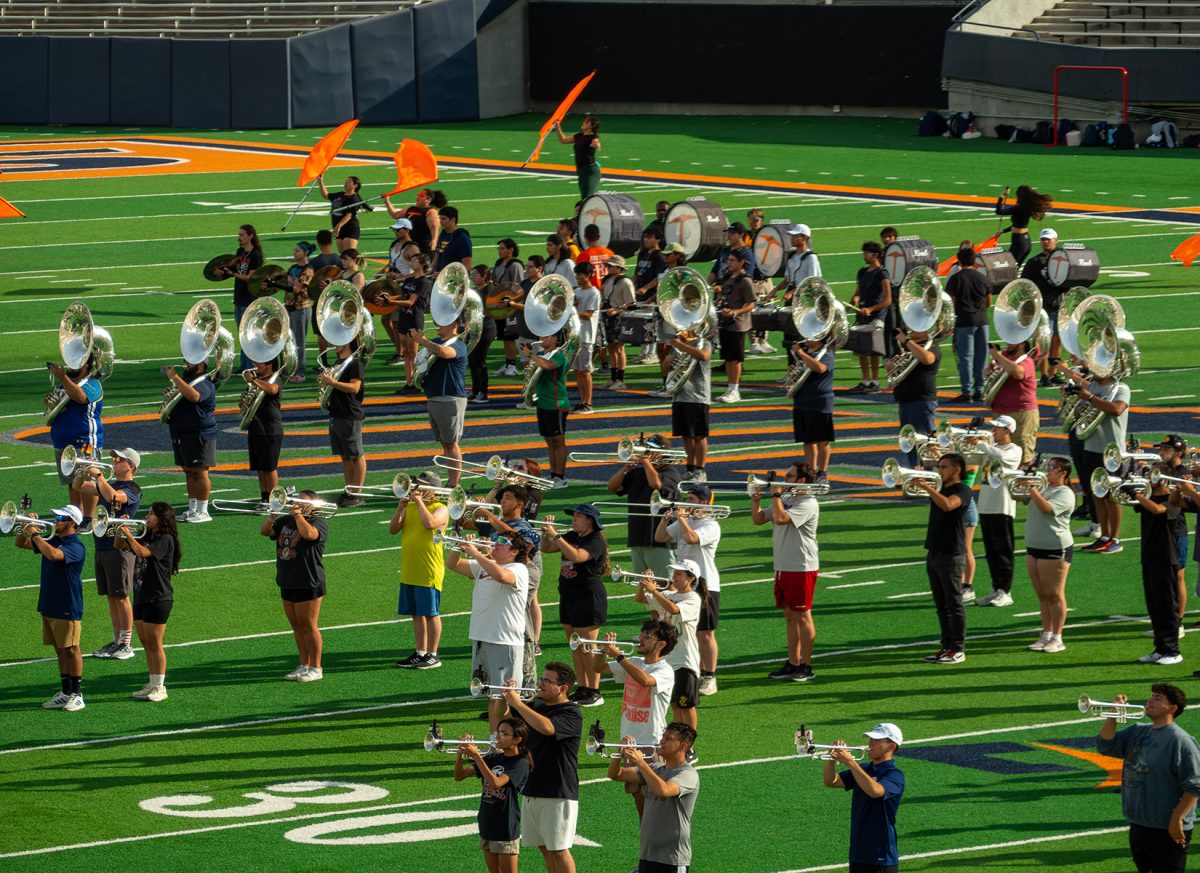The UTEP Political Science department hosted Marques Zárate, Ph.D., a native El Pasoan and assistant professor at Brown University to present his research on how Latino race and identity shape political attitudes in the U.S on Nov. 14.
In his lecture, “The Contours of Latine (Political) Interests,” Zárate examined how different aspects of Latino identity intersect to influence political ideologies and voting behavior.
Based on people’s opinions on policies dealing with immigration, race and social welfare measures, Zárate identified two separate “clusters” within the Latino community, each of which represented a different political orientation.
Zárate’s first cluster represents a more liberal-leaning group while the second cluster represents the conservative-leaning group. Zárate noted that while these groups generally represented Republican and Democratic views, some members of each cluster identified as members of the other party.
“In cluster one 77% identify as Democrat while 15% still identify as Republican,” said Zárate. “In cluster two 76% identified as Republican and 17% identify as Democrat.”
Zárate was particularly struck by the policy positions of the first cluster as even though they aligned with more liberal policies, some of them supported traditionally conservative positions.
“They support to increase the number of border patrol agents on the U.S. Mexican border,” said Zárate. “The way we traditionally think about how Latinos care about immigration, this is pretty counter to our expectations. We would think that they don’t necessarily want that.”
Zárate suggested that diverse experiences among Latinos could be responsible for the surprising support for more conservative ideas.
Another of Zárate’s findings was that members of the second cluster expressed a strong sense of American identity, more so than their Latin identity.
Zárate suggested that this can affect how some Latino voters engage with political messages, especially on issues like immigration, as it can create a disconnection to those that strongly identify as Americans.
“If you are a political campaign or a researcher, I think you need to think critically about how Latinos view their position and value in American society,” said Zárate. “You might be leading on some people who really value the American identity who don’t necessarily want to be othered as a foreigner.”
Zárate’s findings also highlighted that demographic characteristic could predict what cluster individuals land in. The first cluster tends to be female, young and low-income. Individuals in the second cluster were more likely to be male, older and wealthier.
One of the demographics that Zárate found had no significant role in shaping political views was national origin.
“These challenges some of the assumptions about how national origin and immigration status drive political behavior within the Latino community,” said Zárate.
According to Zárate, those who reported fear of deportation or experiences of racial discrimination were more likely to identify with the more liberal cluster. Meanwhile, individuals who endorsed values like economic individualism or expressed greater patriotism were more likely to align with the conservative-leaning group.
Zárate discussed the portrayal of the Latino community in the media as a “sleeping giant” during elections— the group of voters that could sway the election towards either candidate if they acted. However, as Zárate points out, this surge of Latino voters has yet to appear and suggests that the key to wakening this giant may lie in the hands of younger generations.
“The Latino vote is going to be monumental for the future of U.S. politics,” said Zárate. “There’s often narrative that Latinos don’t vote, but when you just talk to them about U.S. politics, they do. I think it’s oftentimes on the children to try to get their parents involved so don’t shy away from politics, embrace it.”
As the Latino population continues to grow, understanding the ways in which Latinos experience race and identity and in turn form political ideologies will be critical for future elections. Whether liberal or conservative, Zárate’s research shows the power that the voices in the Latin community can have.
Ximena Cordero is a staff reporter and may be reached at [email protected]















